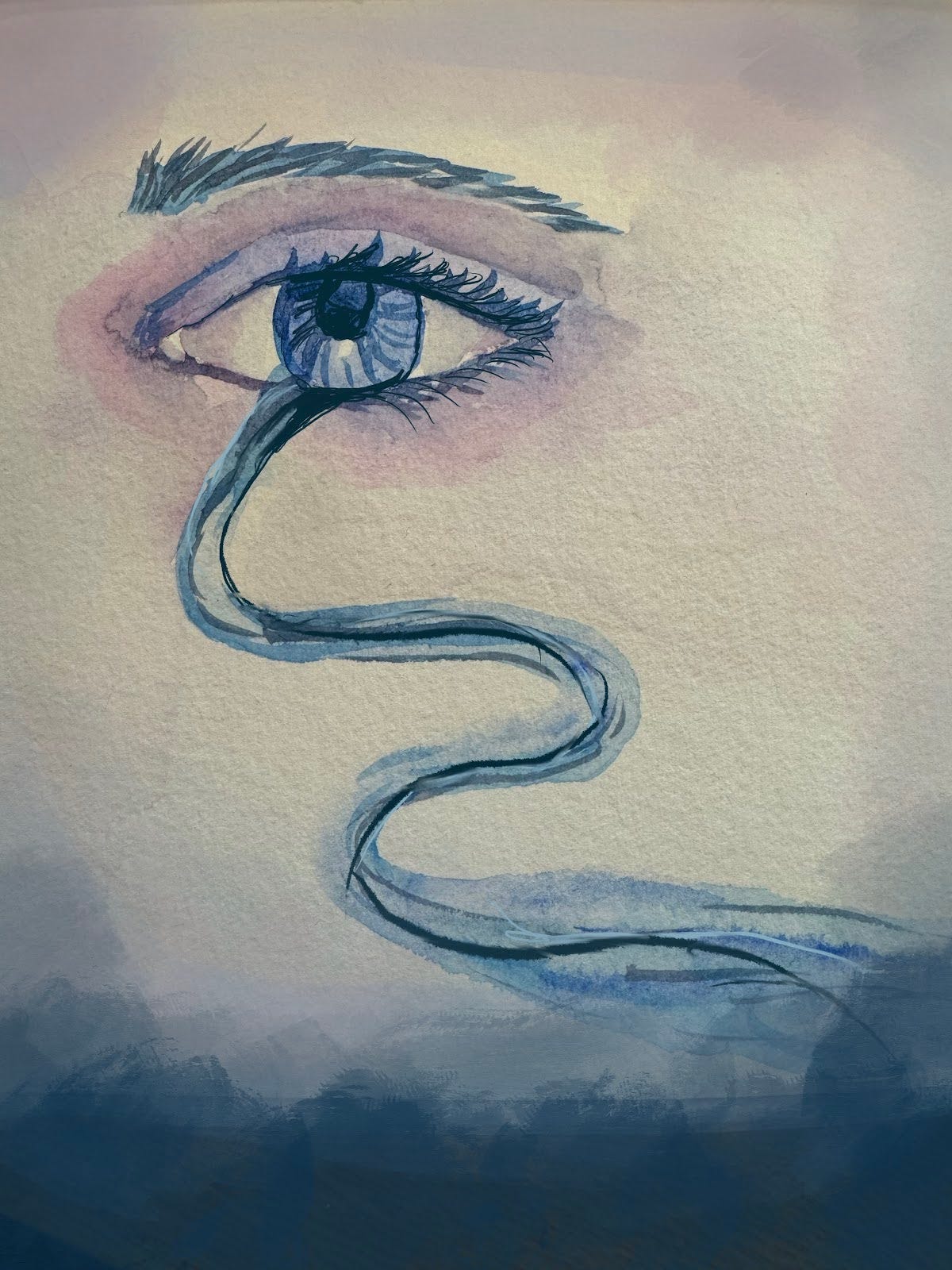This is a column called “Hey Jeff”, where I share a meditation in response to someone’s unique situation, challenge, or curiosity. This month, I respond to a community member’s question about crying during meditation. Below is part of our exchange, edited and shared with permission.
Jeff
Anonymous’s Note:
Hi Jeff …
How should I deal with crying during meditation? It’s hard to follow the breath when I burst into tears. It honestly happens almost every time I meditate and has been for over a year now, I think. (Yes I have a fantastic counselor.) I've been meditating almost every day for about 10 years now but can't figure this out. Help please?
I feel frustrated and anxious and sad during the crying. I feel a bit lost too, about why this keeps happening and how raw it feels and how to deal with it. After, I feel a bit less of these things and I'm able to get up and move on with life. It's rarely a big catharsis but it does help me recenter. Sometimes it's just leaking eyes and sometimes it's full-out sobbing, with no clear indication as to which will come on any given day. So that's fun.
I'm a Highly Sensitive Person and tend to absorb everybody else's emotions even when I put up energy shields. My counselor says it's great to cry because it means I'm letting something go. I've learned that it's less about what exactly I'm letting go and more about the act of releasing energy. I would love some guidance.

Dear Anonymous,
I’m sorry you’re struggling, friend. As another highly sensitive human, I feel you. These are hard times, and we pick up the energy around us. Part of the reason I practice is to reset and let some of that go.
Crying is absolutely normal in meditation, for exactly the reasons and in exactly the way you describe. We get quiet and open and what’s under the surface starts to come up. We can practice for years before this happens; other times it’s immediate; other times it never gets emotional at all. Everyone is different. Sometimes instead of emotions it’s more physical, like the release of muscle tension. It can involve crying, yawning, burping, twitching, spontaneous movements, sudden alignments, memories, visions, and every kind of vibratory and energetic strangeness. “Kriyas” is one term for it.
I tear up a lot, often with no emotion involved - I’ll be surprised afterwards to find my face wet. Body workers have it right: “our issues are in our tissues.” In meditation it’s part of the path, the off-gassing of trapped humours, or to use another metaphor, more of us begins to circulate into more of life. Many describe a sense of relief after these episodes, feeling more open or settled or emptied out. And of course there can also be confusion and discomfort, particularly if we have no context for what’s happening.
A few years into my practice, I went through several months where every time I got deep into meditation I’d feel intense shame and rage. I did not feel lighter afterwards. I felt doomed. It did work itself out eventually. Checking in with a therapist helped, so I’m happy to hear you have a counsellor. A lot of trauma work is built on the understanding that the right supportive presence can accelerate the processing and the integration.
In terms of how this all plays out over time, in particular for the Highly Sensitive Person … here’s a phrase I think a lot about:












